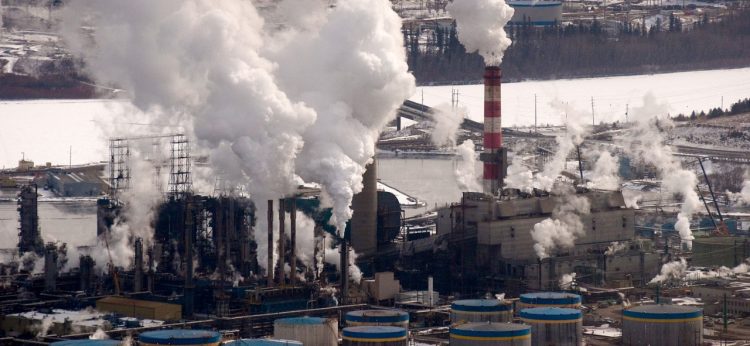

The BC Oil and Gas Commission (OGC) is a regulatory agency that oversees the oil and gas industry in the province of British Columbia. It is a Crown corporation whose purview includes upstream exploration, downstream development, pipeline transportation and environmental reclamation.

Resource Works is a research and advocacy organization aiming to promote the value of “responsible resource development in British Columbia.” 1 It produces reports, news commentaries and videos promoting various forms of resource development in Canada.

The Business Council of British Columbia (BCBC) is a prominent industry association with over 250 member companies and organizations.2 Much like its national counterpart, the Business Council of Canada, the BC Council promotes right-leaning policies emphasizing low taxes, deregulation and support for fossil fuel industries. The BCBC claims that it “regularly contributes to public-policy development at the provincial level,”3 hinting at its role as a powerful lobbyist and event convener on behalf of corporate interests throughout the province.

LNG Canada is a joint venture consortium—made up of Shell, PETRONAS, PetroChina, Mitsubishi and Korea Gas Corporation (KOGAS)—that plans to build a liquified natural gas (LNG) terminal in the town of Kitimat, British Columbia (BC). The facility will liquefy fracked gas from BC and Alberta so it can be shipped internationally by tanker. LNG is primarily destined for the markets of consortium partners (China, Japan, Korea and Malaysia). In 2018, the joint partners made a final investment decision to proceed with construction of Phase One,4 with plans to produce 14 million tonnes of LNG per year,5 and potential to double that capacity through a future Phase Two.

C3 Alliance Corp. is a private consulting firm that specializes in Indigenous engagement and negotiation in the context of resource extraction. It leverages the experience of its staff—many of them former government and industry executives from mining, oil and forestry sectors—to lobby government in the interests of resource extraction, and to advise industry on how to avoid conflict when working with Indigenous communities whose territories are implicated in their operations. While C3 Alliance also contracts its consulting services to Indigenous communities looking to increase benefits to them from resource development, the largest share of C3 Alliance’s client base is industry—primarily mining, forestry, fracking and pipeline companies.6





